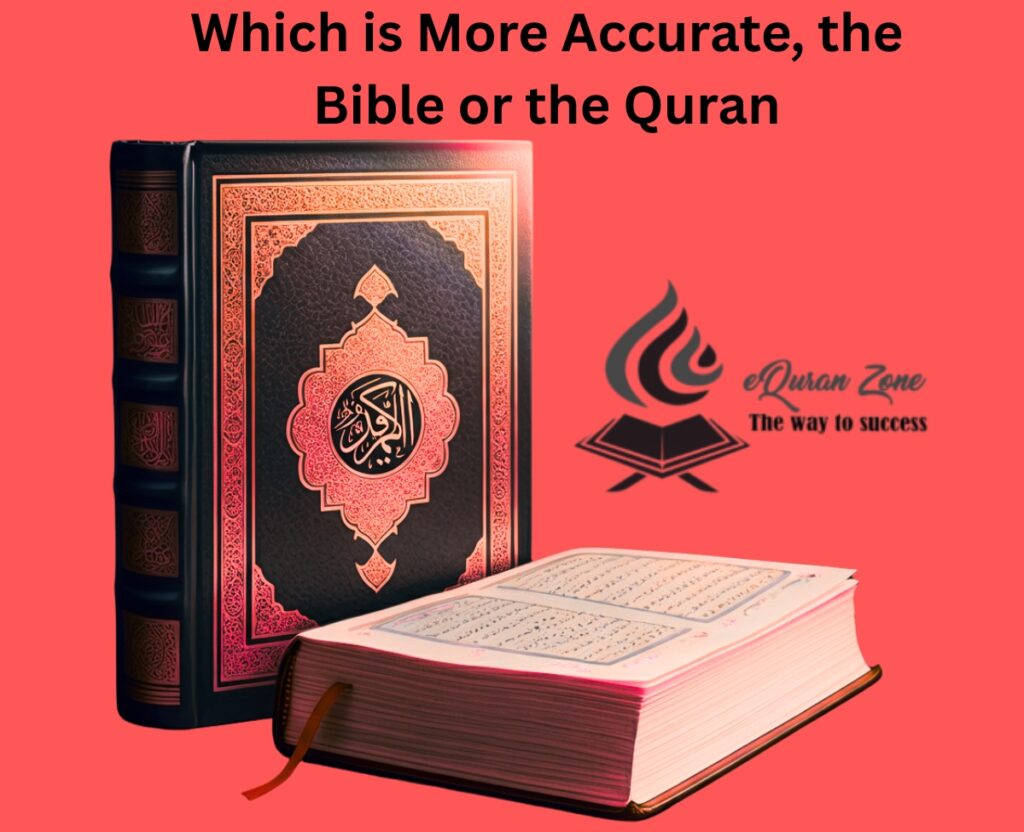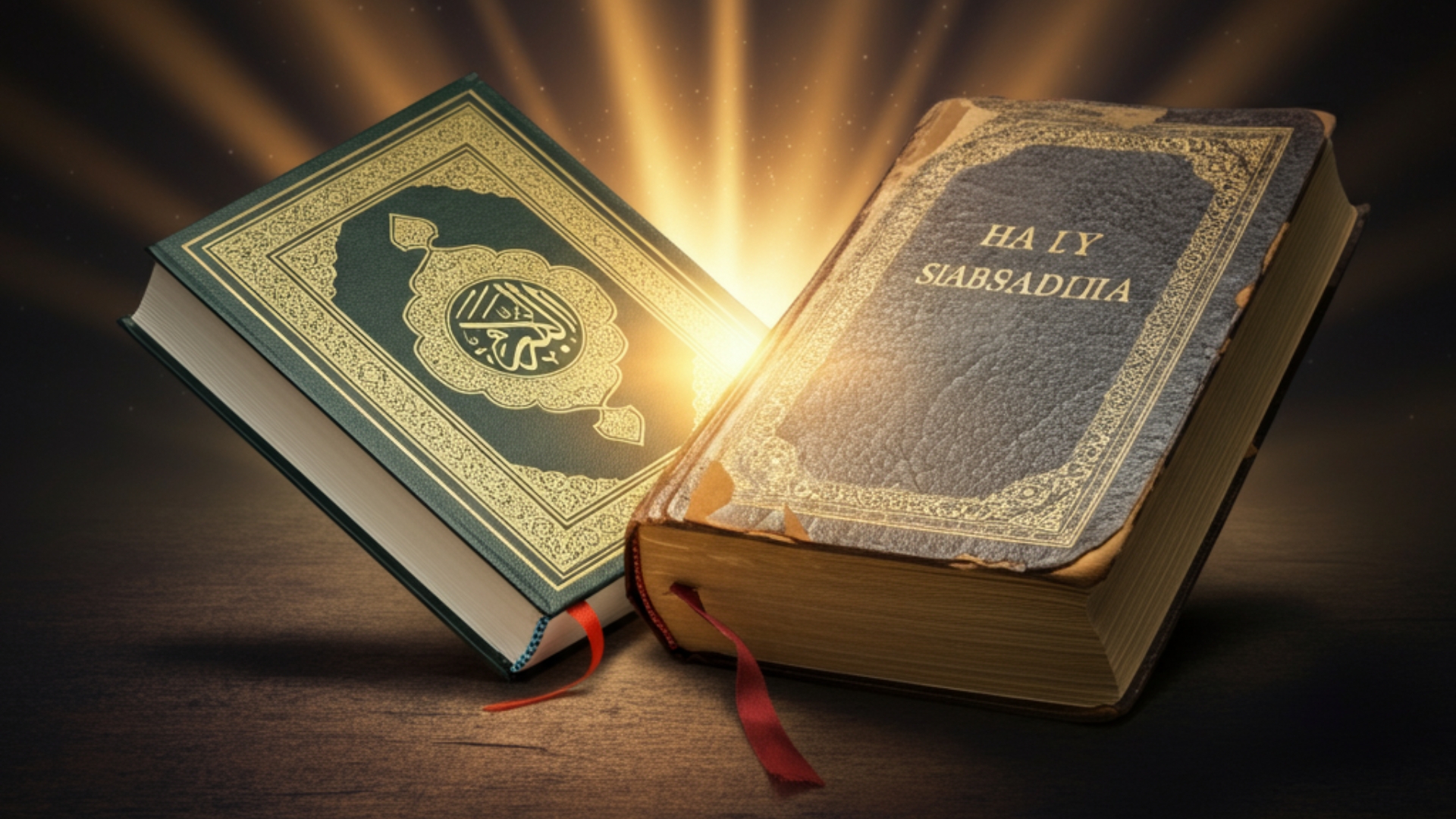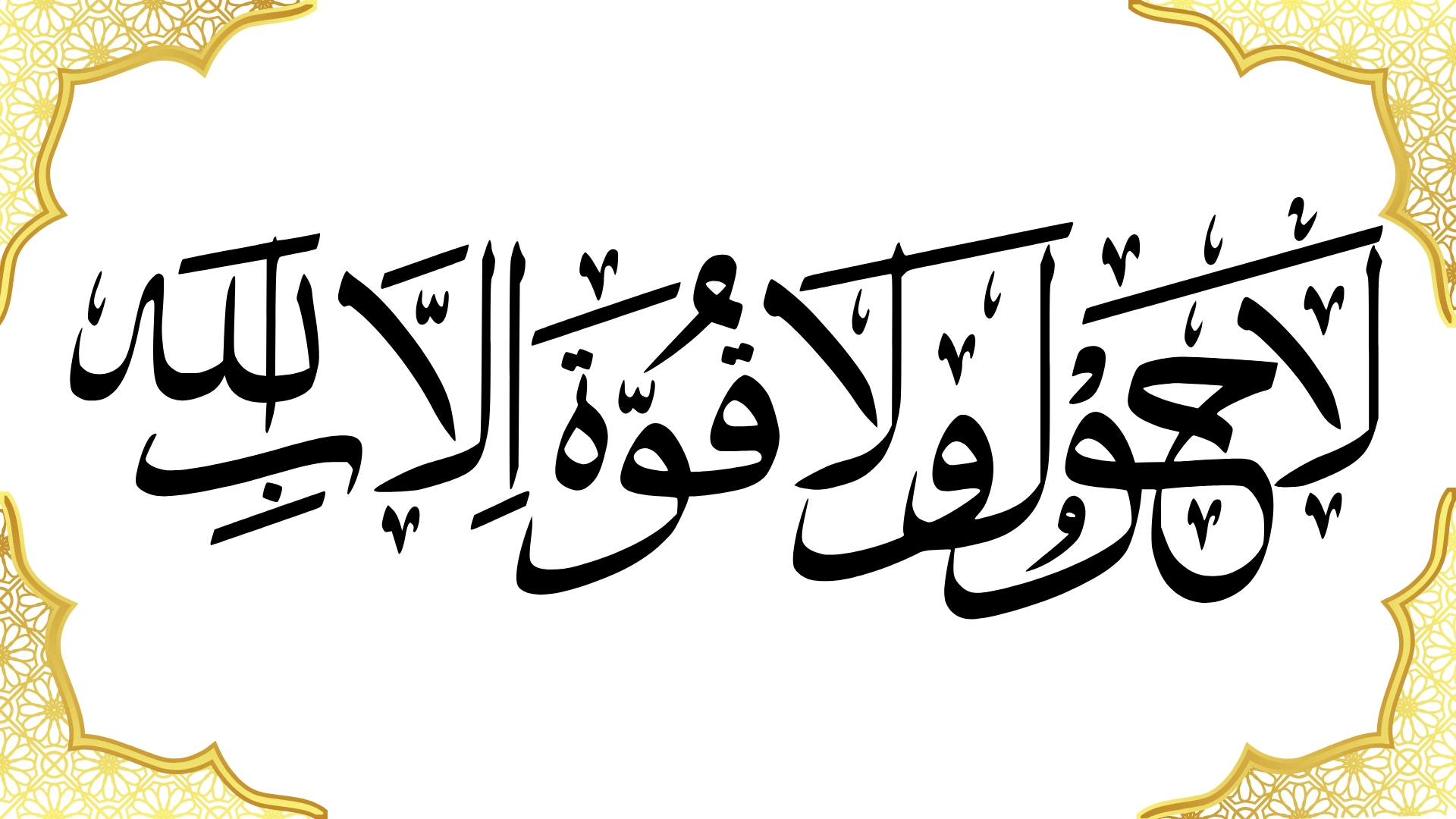The Quran and the Bible are two significant religious texts followed by billions worldwide. People often compare these scriptures to understand their authenticity, accuracy, and relevance. Exploring historical preservation, scientific references, and divine revelations highlights their key differences.
Researchers emphasize the Quran’s unwavering preservation since its revelation. Studies reveal that its content has remained unchanged for over 1,400 years, supported by early manuscripts and oral traditions. Scholars note inconsistencies in the Bible due to multiple authors, translations, and alterations, leading to debates about its reliability as a divine source.
The Quran stands out with its precise preservation, unmatched linguistic beauty, and timeless wisdom. It aligns with modern scientific discoveries and offers consistent guidance for humanity. While the Bible holds moral significance, the Quran’s accuracy, clarity, and divine insights make it a remarkable and ultimate source of truth.
Comparing the Accuracy of the Bible and the Quran
Introduction to Divine Scriptures
Divine scriptures have always been central to religious guidance in human history. The Bible and the Quran are two pivotal texts, providing spiritual lessons and ethical frameworks for billions of adherents. Understanding their origins, preservation, and authenticity helps determine how accurate each is as a source of divine truth. This blog explores the evidence for both, highlighting reasons that make the Quran unique and timeless.

The Quran: A Timeless Miracle
The Quran, revealed to Prophet Muhammad (peace be upon him) over 23 years, is considered the final guidance for humanity. Muslim scholars point to its unmatched linguistic beauty, profound wisdom, and scientific relevance as evidence of its divine origin. Its depth and structure have also inspired countless believers and academics in their faith and research.
The scientific revelations within its verses offer perspectives that were centuries ahead of their time. For instance, verses refer to the expansion of the universe, the protective layers of the atmosphere, and the development of the human embryo. These aspects, coupled with its durability in message, have earned the Quran the title of a “living miracle.”
Preservation of the Quran vs. Alterations in the Bible
Modern-day Quranic copies remain identical to early manuscripts, such as those housed in Topkapi Palace and the Library of Birmingham.
The Bible’s preservation poses more challenges. Historical evidence suggests changes across translations, versions, and interpretations. Biblical scholars acknowledge textual discrepancies over time due to copying mistakes or deliberate edits. For example, older texts like the Dead Sea Scrolls exhibit differences from later versions. Scholars of Christianity admit that these variations affect the consistency of its teachings. This evident alteration starkly contrasts with the uniformity of the Quran preserved through history.
Authenticity of Revelation: Quran’s Divine Origin
The process through which the Quran was revealed adds to its credibility. Quranic revelations came to Prophet Muhammad (peace be upon him) in states of heightened awareness and profound spiritual experiences. These revelations were memorized, written down by scribes, and verified under his supervision.
Such an efficient system ensured unquestionable validation.
Conversely, the Bible compiles books from authors across different eras and settings. Many biblical texts were written long after events occurred, raising questions about their reliability. For instance, historians observe that multiple authors contributed to the Gospels under pseudonyms or decades removed from Jesus Christ’s ministry. This multi-author approach complicates validation and leads to disagreements between scholars.
Scientific Accuracy in the Quran
Scientific discoveries in recent centuries have affirmed many aspects of the Quran. Verses mention concepts like the Big Bang theory, embryology, and the meeting points between salt and freshwater. These descriptions astonish modern scientists due to their precision.
The Quran accurately describes the stages of human life within the womb, down to molecular-level observations only verified with technology hundreds of years later. This level of foresight points to divine origins, as no human in the seventh century could have possessed such knowledge.
The Bible, in this realm, provides allegorical references rather than precise details. Scientific inaccuracies within some narratives have subjected it to skepticism in later centuries. Examples like the stationary Earth belief, prevalent during Catholic teachings, highlight limitations in aligning some interpretations with science.
Consistency in Message: Quran’s Unchanged Teachings
The Quran’s teachings remain constant across centuries. Its moral, legal, and theological principles reflect a divine system relevant in every context and era. Each verse completes a message consistent with earlier scriptures, confirming prophecies and rectifying distortions found in previous revelations.
The Bible, while moral at its core, presents challenges regarding contradictions across books and even within similar narrations. For instance, differences between the Gospels concerning the life and mission of Jesus Christ (peace be upon him) foster theological debates even among followers. Interpretative license granted to Church councils and leaders throughout history further complicates this. Such alterations lead to divisions within Christianity, such as Protestantism veering from the Catholic path.
Historical Evidence Supporting the Quran
The Quran’s preservation extends to archaeological findings. Ancient Quranic manuscripts, like parts of the Sana’a manuscript discovered in Yemen, match today’s standard script. The oral tradition, still practiced worldwide, ensures continual reaffirmation through recitation.
On the contrary, historical inconsistencies plague the Bible’s manuscripts. Texts suffered under empires and conflicts (such as the Roman influence over Christianity under Emperor Constantine). These factors led to debates about which Biblical books were canonical, resulting in lost or doubtful inclusions.
The Quran’s Guidance for Humanity
The Quran addresses every facet of human life. It establishes economic systems, criminal justice laws, spiritual obligations, and interpersonal behavior rules. Despite being over fourteen centuries old, its principles seamlessly integrate into modern societies. Muslims often refer to it as the ultimate source of divine guidance, shaping their ethical compass.
The Bible primarily centers on theology and morality. However, its teachings often derive situational advice rather than universal frameworks. For example, dietary or dress codes from the Old Testament clash with later Christian teachings. Conversely, the Quran holds permanency and relevance in its directives through timeless laws applicable across all cultural landscapes.
Prophecies Fulfilled in the Quran
Prophecies within the Quran and their fulfillment stand as evidence of divine revelation. The preservation of Islam despite challenges fulfills numerous predictions stated within the text. For instance, it predicts the triumphs Muslims achieved across Arabia after facing adversity and resistance in the formative years. Another notable prophecy references the Byzantine Empire’s victory against Persia, confirmed years later.
The Bible contains prophetic elements, but its later textual changes raise doubts over interpretation and validation. Some believers argue over symbolic meanings in prophecies, reducing clarity.
The Quran’s Linguistic Perfection
The Quran’s linguistic structure remains unparalleled in its eloquence and rhythmic symmetry. Scholars and linguists, including those from outside Islam, have acknowledged its prose and poetry as beyond human reach. Each verse balances complex meaning with a simple yet commanding tone. The Quran’s linguistic appeal even convinced many adversaries of Islam in its early revelation. Its challenges to produce an equivalent text remain unmet over centuries.
Addressing the Misconceptions in the Bible
When comparing both texts, misconceptions often arise surrounding the Bible’s divine authority. Many inconsistencies within the scripture lead to debates among scholars. Stories and passages found in some Biblical versions are absent in others, such as the story of the adulterous woman in some Gospels. These examples show the altered state of a text once considered divine. Misinterpretations and political motivations over time have only enflamed this complexity.
The Enduring Impact of the Quran
Despite being revealed over 1,400 years ago, the Quran continues to impact politics, education, and spirituality globally. The text does not age or grow irrelevant. Its timeless wisdom influences life decisions for believers daily. The Quran addresses modern-day challenges, including mental health advocacy, ecological justice, and economic disparity. While the Bible resonates with limited communities today, the Quran provides universal principles appreciated across cultural boundaries.
The Quran as a Harmonizer of Humanity
It addresses interfaith dialogues and promotes understanding between cultures while establishing boundaries for ethical living. The Bible divides historical communities through differing interpretations. This contrast underscores the Quran’s holistic guidance for a diverse and connected society.
Conclusion:
Through historical, scientific, and theological lenses, the Quran emerges as a remarkably preserved and consistent text. Its unassailable authenticity secures itself not as Muhammad’s creation (peace be upon him) but as a miracle revealed by Allah. While the Bible retains moral worth for spiritual teachings, the inconsistencies in preservation and contradictions in its narrative diminish its accuracy compared to the Quran. The Quran, with its miraculous knowledge and appeal across eras, establishes itself as the definitive truth in divine literature.




